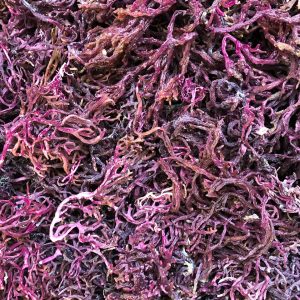Key Ingredients and Their Benefits:
- Dandelion Leaf: A natural diuretic, dandelion leaf helps promote urine production and flushes excess fluids from the body.
- Nettle Leaf: Rich in nutrients and known for its diuretic effects, nettle leaf supports kidney function and helps alleviate water retention.
- Horsetail: This herb supports urinary health and contains silica, which may enhance connective tissue strength and reduce swelling.
- Green Tea: Packed with antioxidants, green tea may aid metabolism and has mild diuretic properties that help reduce water retention.
- Ginger Root: Known for its digestive benefits, ginger can help stimulate circulation and reduce inflammation, which may alleviate swelling.
- Fennel Seed: Fennel acts as a natural diuretic and may help relieve bloating and discomfort associated with water retention.
- Corn Silk: Traditionally used to soothe urinary issues, corn silk helps promote fluid balance and urinary tract health.
- Parsley: A well-known diuretic, parsley may help to flush out excess fluids and reduce bloating.
- Juniper Berries: These berries are traditionally used to support kidney function and have natural diuretic properties.
- Hibiscus: Known for its refreshing flavor, hibiscus may help lower blood pressure and promote fluid elimination.
- Licorice Root: With anti-inflammatory properties, licorice root may support adrenal health and help regulate fluid balance in the body.
- Peppermint: Known for its soothing effects, peppermint can help relax the digestive system, alleviating discomfort associated with bloating.
- Chamomile: This calming herb supports relaxation and may help ease digestive issues related to water retention.
- Burdock Root: Traditionally used for its detoxifying properties, burdock root may support liver function and promote fluid balance.
Brewing Instructions: Steep one tea bag in hot water for 5-10 minutes. For optimal results, enjoy 1-3 cups daily.
Water retention, also known as edema, can be caused by various factors, including:
- Dietary Factors: High salt intake can lead to the body holding onto excess sodium, which retains water.
- Hormonal Changes: Hormonal fluctuations during menstruation, pregnancy, or menopause can cause water retention.
- Medications: Certain medications, such as corticosteroids, NSAIDs, and some blood pressure drugs, can lead to fluid retention.
- Medical Conditions: Conditions like heart failure, kidney disease, liver disease, and thyroid disorders can disrupt fluid balance in the body.
- Physical Inactivity: Prolonged sitting or standing can hinder circulation and lead to swelling in the legs and feet.
- Allergies and Inflammation: Allergic reactions or inflammation can cause localized swelling.
- Heat: Hot weather can cause blood vessels to expand, leading to increased fluid in the tissues.
- Dehydration: Paradoxically, dehydration can cause the body to retain water to prevent further fluid loss.
If water retention is persistent or severe, it’s important to consult a healthcare professional for proper evaluation and treatment.





Reviews
There are no reviews yet.